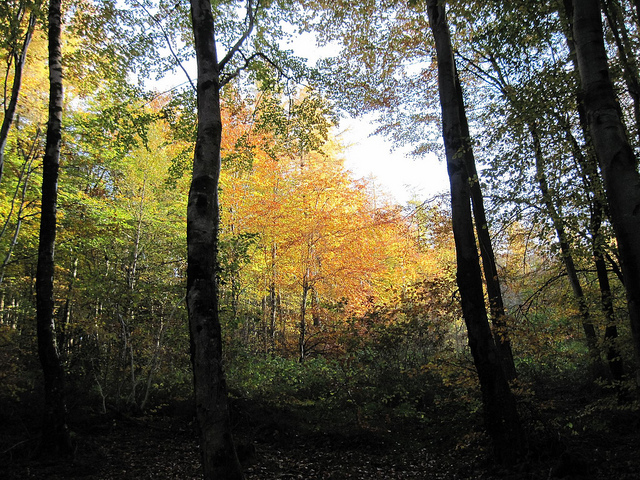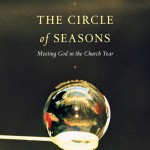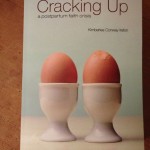
5
In ev’ry desert an oasis lies—
Its fruitful trees, viridescent springs seem
To thirsty sojourners’ sand-blasted eyes
An Eden new—renewed—they think they dream—
As I do dream before this wicket gate—
A bench beneath plum-blossomed trees—
For me? Glad hand to latch I hesitate—
Might I sit in shadowed shade, drink in these
Pink petals? Or do seraphs’ swords of flame
Guard this gate? Is Eve scorned or welcomed here?
Might these trees’ leaves heal haunted hearts self-shamed?
Might shamèd faces lift and feel no fear?
Might haunting flee? Hearts open to embrace?
Or will a further shaming mark this place?
—E.B., 1818
It was the first fine day in many weeks. The sky was clear and pale blue, and weak autumn sunshine shone on the damp fields, turning their green to deepest emerald. The air was crisp and cool, with that tang of falling leaves and wet earth that always made Maggie feel both happy and sad at the same time. She put her hands in her jacket pockets as she walked, and touched the brittle paper of E.B.’s sonnets.
Leaning against the cold stone of a low wall bordering one of the many pastures, she looked down toward the river. Sheep grazed in the meadow on the other side of the wall, two different breeds. She smiled to think she knew that and wondered if she would run into James today.
After fingering the pages of the sonnets, she gingerly pulled them out of her pocket and held the folded pages in both hands. They felt holy to her somehow. She longed to know what had happened to E.B. Who was she? And how had her poems ended up in Helen’s attic? Maggie imagined many scenarios, but without more clues than the sonnets provided, she would never know—and she wanted to know. Her own future seemed to depend on E.B.’s future, now in the past. Could she discover that past—but how if it were tragic? E.B. met kindness, Maggie knew, but did she know affection, or love? Had she been able to let go of the deep pain that her lover’s betrayal and abandonment had caused her? Had she lived a happy life?
“You’re awfully deep in thought.” James’s voice startled her out of her reverie.
Maggie started. “Must you keep doing that? Sneaking up on a person and frightening her half out of her wits?”
He stood on the other side of the stone wall and grinned at her. “I’m sorry. I tried to warn you. I cleared my throat twice, and I coughed.”
Maggie’s cheeks flushed, and she laughed apologetically. “It’s okay. I was just—thinking.”
“Aye.” James’s grin widened. “I gathered that.” He gestured to the papers in her hand. “A letter from home?”
She shook her head. “I found these in a trunk in Helen’s attic.” She hadn’t planned to tell anyone about the sonnets. She had not shown them to Gram. She had not even mentioned them. She could not bear to. Maggie felt protective of them, of E.B. herself. But when she glanced at James, his face was so kind, his eyes so attentive that she found herself continuing, “They’re sonnets. Six of them. By a woman. No signature, just her initials and the year—1818. I’ve no idea who she was, or how her verses ended up in a trunk in Helen’s attic. It’s all rather mysterious.”
“May I read them?”
Maggie hesitated. But how could she refuse now she had told him about them? It would be rude, and they were sonnets after all, and James was a shepherd; perhaps he would not entirely understand them; certainly he could not know how they affected her. All this flitted through her head in half a second, as he looked at her with his kind eyes and gentle smile, and she saw her arm extending and her hand surrendering the precious papers to him. He read them silently, his face inscrutable, then folded them carefully and handed them back to her, and still said nothing. He looked quietly out over the meadow and down to the river.
Maggie’s heart pounded. How much had he understood? How much had he guessed? She wished she had kept her mouth shut and the sonnets to herself. What had possessed her to show them to him?
“I miss poetry,” James said softly.
His words were so unexpected that Maggie blinked and gave herself a mental shake. “You—what?”
He smiled, though he still looked out at the fields. “I miss poetry. I’ve read or remembered more of it in the weeks I’ve known you than in the past five years.”
Maggie studied his profile, wondering.
“I studied literature at Oxford,” he said. “For eight years.”
Maggie’s cheeks burned. Her arrogance and presumption! Only a shepherd! Thank God he could not read her thoughts. Couldn’t understand a sonnet!
“By the time I was done with my D.Phil.,” James continued, “I hated poetry. I hated literature. I almost hated words. I couldn’t remember why I’d spent so many years studying them. It was all rot—we saw to that, tearing the words to pieces to display our superior intelligence, our vaunted wisdom. But we were fools. We scraped the earth out from under our own discipline till all that was left was dust. I couldn’t have said that then. I only knew I was sick to death of words. I couldn’t bear the thought of spending the rest of my life with them.
“Two days before my degree ceremony, my parents—they were driving down to Oxford for it—were killed in a motor-car smash.”
“Oh, James!” Maggie reached across the stone wall and placed her hand on his arm.
He seemed not to hear her voice or feel her touch. “When I heard the news, I got into my car and drove till I ran out of petrol.” He pointed down the hill to the south. “My car stopped a quarter mile from Bill and Keziah’s. I walked to their house—Bill was out—but Keziah invited me in, and by the time Bill returned, she had adopted me—I hardly know how it happened, even now. I never went back. I never want to. But—” he glanced at Maggie and gestured to the papers in her hand “—I realize I miss poetry. I might even be ready to read something other than the almanac and sheep breeding journals.” He grinned at her, but there was sadness in his eyes.
Maggie squeezed his arm in sympathy. “Oh, James,” she said again. “I’m so sorry.”
He shrugged. “It was five years ago, Maggie. Time—you know.”
“The great healer.”
He nodded. “And earth. And wind. And sky.” He grinned again. “And sheep.”
Maggie looked out at the pasture, the sheep grazing placidly in the sun, the river wending silently in the middle distance, the green hills rising again on the other side. A breath of breeze touched her bare face and hands. “Yes,” she said, returning his smile. “I can see that.”
Photo by Joysaphine, Creative Commons via Flickr.

